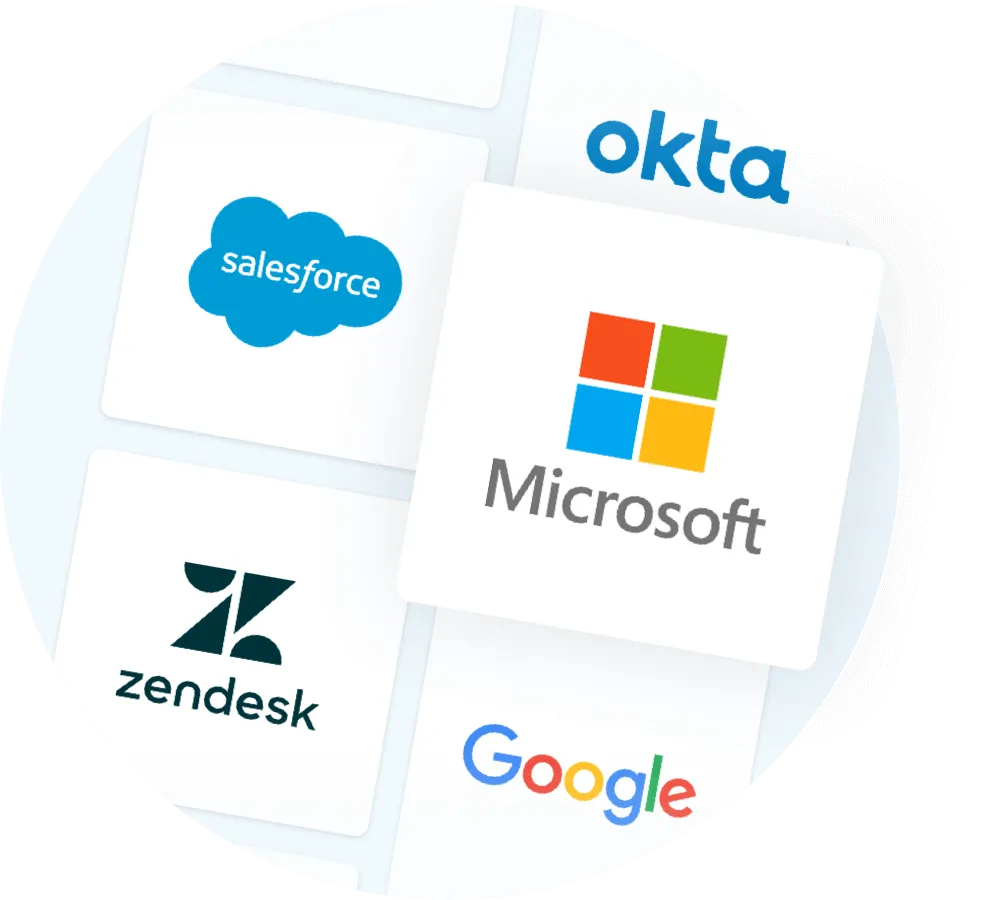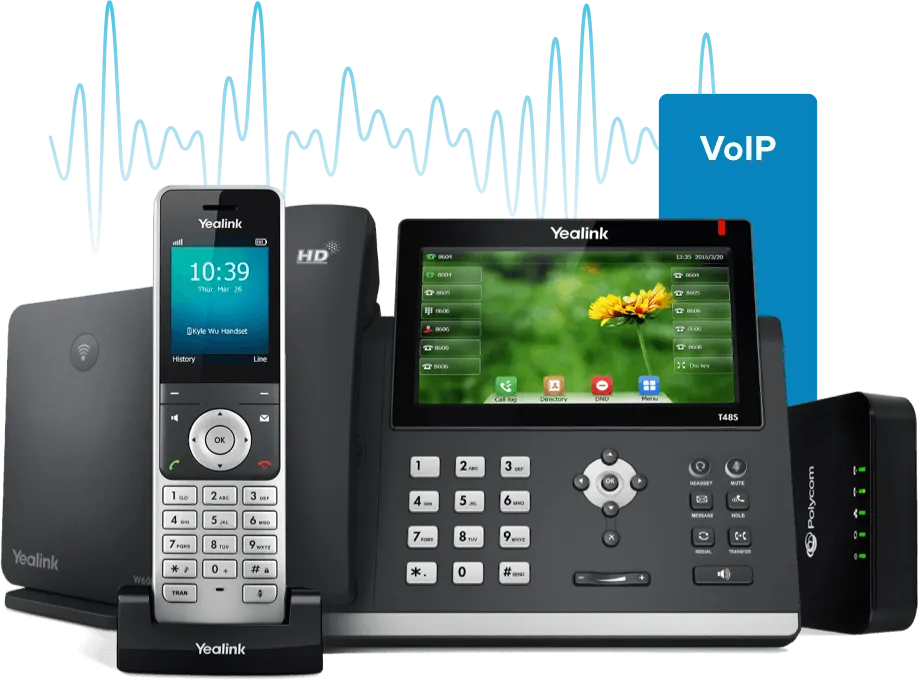Cheap VoIP Service: Is It All About Price?
Learn about low-cost business VoIP phone systems that are also reliable.

From cheap alternatives to traditional phone systems to VoIP-based unified communications
In the past, only big companies could have enterprise-level phone systems—they were the only ones that could afford them. After all, these on-premise calling and private branch exchange (PBX) solutions were expensive and ate a huge chunk of companies’ budgets. Because of this, small and mid-sized businesses had to rely on not-so-great options, like landlines and other inflexible ways of communicating.
That’s probably why VoIP networks (voice calls made over IP networks) are so popular today. As an alternative to traditional phones (and the copper wiring they need) hosted PBX providers (cloud-based incoming call routing) that don’t need expensive IT infrastructure changed everything. Suddenly there is a much less expensive business phone system option that is within reach for smaller businesses.
As cloud technology advanced, these internet phone systems evolved into modern unified communications solutions. This didn’t just improve call quality—it also incorporated features like video conferencing, virtual numbers, fax, and SMS into one platform. What was supposed to be an alternative to traditional phone systems became the solution of choice not only among small and mid-sized businesses but with enterprises as well. After all, who doesn’t like getting more for less?
Now, when you look for cheap VoIP services, that probably doesn’t mean you’re looking for low-quality alternatives to premium offerings. What you want is a modern and reliable unified communications and collaboration solutions that will not break their budget.

How business VoIP helps you save on communications costs

Unlimited calling across the US and Canada
One of the best reasons to use a VoIP phone system vs landline phones is the unlimited long-distance calling. With traditional phone service providers, when you make a call outside of your area code, you are automatically charged for a long-distance call. Most VoIP providers include an unlimited calling plan so you can make voice calls from anywhere in the US and Canada without paying extra.

Collaboration and VoIP calling features all together
Having separate providers for different communication tools like VoIP, video conferencing, and PBX can get confusing—fast. . Separate vendors means separate bills, different people to deal with, and too many things to keep track of. Having different providers for every feature can also add up to major expenses without you realizing it, because you’re getting multiple low-priced-looking bills but for every piece of technology. Next thing you know, you’re paying thousands of dollars for different solutions that don’t even work well together.
With today’s VoIP systems, you get one itemized phone bill for everything you need to communicate and collaborate as a business:
- An automated attendant to answer all incoming calls
- The ability to automatically route calls to the right virtual phone extension
- Your choice of hold music and call recordings
- Custom call handling rules to send after-hours calls straight to voicemail
- All your VoIP features in one account dashboard, including call waiting, call blocking, caller ID, and call forwarding The best thing? Without paying extra, your employees get access to all these features through a single easy-to-use digital platform.

Save on VoIP service maintenance
On-premises phone systems and their associated hardware can get super expensive to implement—and that’s before you even run them. Who is going to do the upgrades? You have to hire an admin just to add and remove users and configure the phones.
With VoIP phone systems, the infrastructure and hardware are typically in cloud data centers owned by your VoIP business provider. Which means the responsibility for maintaining the service also falls in their bucket—not yours. You’ve got enough on your plate as it is
Even the maintenance of the business phone system, including software upgrades and updates, are performed by experts on the vendor’s payroll. So, you don’t have to hire specialists to manage the technical aspects of things (or even have to figure out how to configure the service yourself).
Also, with an easy-to-navigate unified platform, anyone—even if you don’t have specialized skills or training—can configure and manage the whole thing from their own computer or mobile device. This also eliminates the need to hire internal or third-party consultants to modify the phone system every time you move offices or restructure the team. Translation: even more money saved.

Integrate your VoIP system with existing business apps
Good VoIP providers know that you probably already use, and love, some popular business apps like Google and Microsoft. You’ll want to find a solution that seamlessly integrates with these apps, so you don’t have to leave the one you’re working in to make and receive calls, chat with a coworker, start a video conference, or share files.
Improve your customer relationships by having their information at the ready when you use a phone system that integrates with customer relationship management (CRM) systems like Salesforce and Zendesk. And with a Single Sign-on app like Okta, your users can use one login and password to get into many of their business apps.
Frequently asked questions about cheap VoIP phone services
What is VoIP?
VoIP stands for voice over internet protocol. You may have also heard it referred to as “IP telephony.” It’s basically voice communications over the internet, and has made huge strides in terms of call quality and security features since when it was first invented.
In the distant past, the main criticism thrown at VoIP was that the quality of the calls were not on par with traditional landlines. However, a lot of ground has been covered in this area. (RingCentral, for instance, supports HD voice that surpasses the call quality of most regular phone companies.)
VoIP calls are made using VoIP phones, which may look like ordinary phones at first glance but are actually specially designed devices specifically to facilitate calls over the internet and connect to other VoIP phones or even traditional landlines. There are two types of VoIP phones:
- Hard phones: These refer to physical VoIP phones that can be used to make calls over the internet. The most common are desk IP phones that look like regular analog landline telephones. Other types of hard phones are IP conference phones (those “starfish” phones) and receptionist phones, which are basically IP desk phones with modules attached for routing calls manually.
- Softphones: These are apps or software that can be installed on your desktop computer (desktop app) or mobile device (mobile app), so you can make and receive calls using the VoIP service on your laptop and mobile phone. Most VoIP providers have a custom softphone app, so you and your employees can bring your own device (BYOD) to communicate at work.

Can I get VoIP at home?
Yes! That’s one of the best parts about VoIP. No matter where you are, as long as you have an internet connection, you can make and receive calls using your VoIP business phone number and virtual phone extension.
You don’t need to subscribe to separate residential VoIP providers unless you want one for personal use.
What's the difference between business VoIP and residential VoIP?
Most residential VoIP plans are pretty basic, and the technology is like what you’ll find in a traditional home landline. VoIP for home use is basically an internet phone service that lets you make inbound and outbound calls through IP with some other features like caller ID, call forwarding, and speed dial.


Business VoIP solutions, on the other hand, are usually tied to business phone systems that have advanced features for call management, like cloud hosted PBX, auto attendant, and virtual extensions. Some VoIP services have also evolved to become complete unified communications solutions, which come with communications and collaboration tools like team messaging, file sharing, and even video meetings all on one platform instead of several separate apps from different providers.
Is there a free VoIP service?
There are consumer-level VoIP applications that let you make internet phone calls for free. Some of the most popular free VoIP app providers are Skype, Viber, and Facebook Messenger.
But although these VoIP apps are free, they also tend to be severely limited. (And no, it’s not just because we’re biased.)
In most cases, they can only call or receive calls from people who are using the same application. Most don’t even allow calls to regular landlines—and those that do require premium payments or upgrades to paid plans.
If you’re using VoIP for personal calls to family and friends, then sure, these apps are decent. But if you’re running a business, you’re probably going to need more out of your VoIP service.
How much does VoIP service cost?
Prices for VoIP-based business phone systems can vary depending on the provider and the number of features included. Typically, a VoIP system plan ranges from $20 to $50 per month per user. But monthly rates can be lower if you choose an annual phone plan.
Check out the RingCentral plans and pricing section below to see the pricing and features included in each type of plan. From there, you can research and compare top providers in the industry to see what their VoIP services provide to customers.



